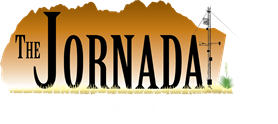| Title | Improving Field-Based Experimental Research to Compliment Contemporary Management |
| Publication Type | Journal Article |
| Year of Publication | 2009 |
| Authors | Svejcar T, Havstad K |
| Journal | Rangelands |
| Volume | 31 |
| Start Page | 26 |
| Pagination | 26-30 |
| Date Published | 09/2009 |
| ARIS Log Number | 245426 |
| Abstract | Rangeland management has long been described as both a science and an art (Stoddart et al. 1975). Certainly, the management of rangeland resources, especially during the last half of the 20th century, can be characterized as practices commonly informed by science. There are a number of management practices where synthesized bodies of experimentally derived observations have provided science-based rationales for their application and use. The collection of recorded observations from different field experiments in diverse environments has often resulted in reasoned understandings of relevant ecological processes and the structures and/or dynamics of these systems. At its core, rangeland management is a set of practices implemented over time that reflect a manager’s understanding of the limits and opportunities of those structures and dynamics. A well-articulated body of scientific evidence can enhance understanding beyond generational knowledge or site specific experiences. Tension, though, between practitioners of science and art can result if synthesized knowledge is seen as either counter to or unsupportive of anecdotal knowledge or site based perceptions. At issue here is the reconciliation of scientific evidence with a perceived understanding accumulated from either personal or generational experiences, or accumulated over time at specific sites. For over 400 years Western Culture has been closely linked to science and scientific advances from medicine to physics to genetics to engineering to ecology. Yet, throughout this history we have seen science progress and provide its greatest contributions when it is understood within the general culture and eventually applied by the general population. Rangeland management may be more correctly viewed, then, as the artistic application of science-based principles. The role of science in rangeland management is not to try to evaluate each novel approach of the artist, but to continue to provide the principles that have application to the art. Science has provided basic principles for management tied to the spatial and temporal scales and uses of the 20th century land manager. The challenge for science today is to provide the principles for the spatial and temporal scales and the uses confronting the 21st century resource manager. We think that these science based principles will emerge from a combination of cross-scale, enterprise-level, interdisciplinary, and long-term type studies. But we have to conclude that the answer to the title of this paper is "no" – traditional field research alone will not be sufficient, nor appropriate, to evaluate the majority of novel management approaches. http://www.srmjournals.org/ |
| URL | /files/bibliography/09-029.pdf |
| DOI | 10.2111/1551-501X-31.5.26 |


